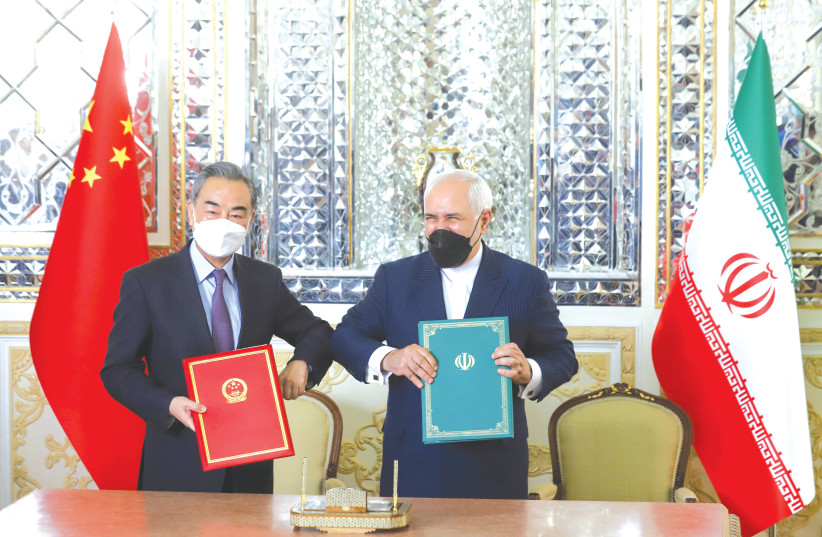Back in April 2019 the US, then under the Trump administration, said there would be no more exemptions or waivers for Iranian oil sanctions. Then US Secretary of State Mike Pompeo cancelled the waivers, reports said at the time. The goal was to pressure Iran and drive oil exports to near zero. In August 2020 reports said the US seized Iranian petroleum on ships heading for Venezuela. Several Iranian ships also made it to Venezuela in May and June 2020. UK Royal Marines also briefly detained an Iranian tanker near Gibralter in August 2019.
Fast forward to November 2021. Iran is talking up oil exports again. This comes as Iran has claimed it suffered the threat of a “pirate” attack at sea and after a Wall Street Journal report said earlier this year that Iranian ships had been targeted by Israel on their way to Syria.
Iran now needs $160 billion of investments in its oil and natural gas industries in the coming years, to avoid becoming a net importer, the oil minister has said, according to a report in Iran International. “Javad Owji told a budget planning meeting on Sunday that because of lack of investments in the past, the country is now faced with a stark choice – invest $160 in its oil and gas sector or face declining output and eventually imports of fossil fuels.”
The oil story has front page coverage in Tehran. Accordng to a correspondent of Fars News Agency, the Minister of Oil attended the meeting of the Economic Commission of the parliament, and said in a televised interview explaining the details of the meeting: “I presented the ministry to the members of parliament, while also presenting a report on the sale of oil, oil condensate, exports and domestic sales.”
The situation is much better than in the last years he said. “Good work has been done in this field by using domestic and foreign power and capacity.” The Minister of Oil stated: "Oil purification, and especially oil purification, good measures have been taken in the government to invest in various projects, and good plans have been identified, which will be key soon."
Iran has “plans to invest in oil condensate and gas condensate and to maintain production, as well as to optimize energy consumption and supply of furnace oil and gas oil." The Minister of Oil stated: "With the plans of the Ministry of Oil and the actions of the 13th government, we are looking to increase the refinery capacity in the country, which in the next 4 to 5 years will reach 1.4 million tons per day.”
According to another report at Fars News, Iran is watching closely as the US seeks to discuss Iran oil exports with China. Iran “has imported an average of 800,000 barrels of oil per day over the past three months, more than double the same period last year,” the report says. Iran may be concerned that China, which Iran has signed a 25 year deal with regarding multiple partnerships, could be pressured by the US. Iran is putting on a brave face, arguing that the US has failed in the region.

Why might Iran be talking oil and energy exports now? One odd thing is the claim that Iran faces “piracy” threats at sea. In the last months, it is Iran that has been harassing ships at sea. In July an Iranian drone killed two crew on a tanker in the Gulf of Oman. Iran has also threatened the US and Israel. Tehran sees itself as being in a regional shadow war with Israel, and shipping is part of that conflict, in Iran’s view. At the same time, Iran desperately needs revenues for its energy sector. It needs to repair old infrastructure. Iran also wants to send energy supplies to Lebanon to back Hezbollah. It also sends fuel to Syria. But Iran can’t do all this largesse without also getting some funds. Hezbollah, Syria and Iranian-backed militias in Iraq can’t pay Iran much money. So Iran needs China and other places to export.
